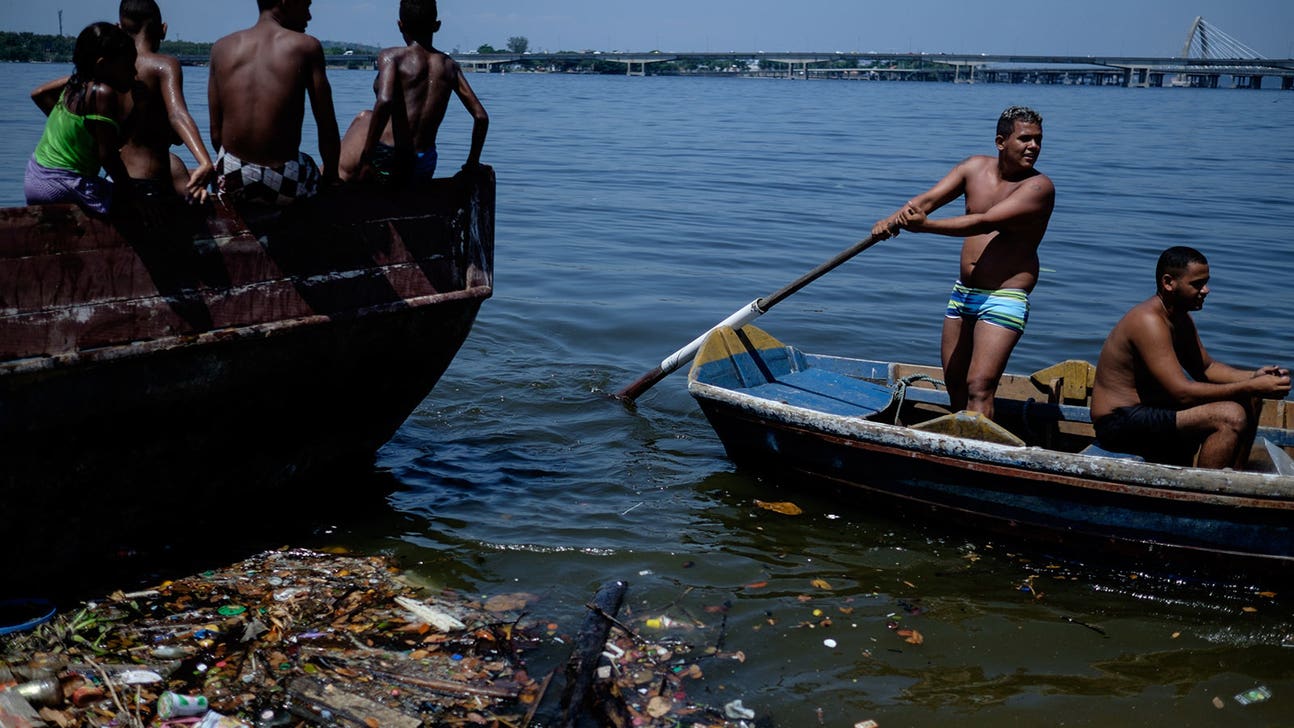
Official renews efforts to clean Rio's dirty waters in time for 2016 Olympics

RIO DE JANEIRO -- Rio de Janeiro's top environmental official said Tuesday he hopes to restart a stalled project to clean the trash- and raw sewage-filled lagoon system that hugs the site of the city's future Olympic Park.
The contractor chosen to dredge the Jacarepagua lagoon has been unable to start work on the $250 million project due to a conflict with the state public prosecutors' office. With the start of the Olympics only 18 months away, Andre Correa warned that time is running out.
''The lagoon cannot wait any longer, we need to make a decision,'' said Correa, Rio state's environment secretary. ''I'm ready to greenlight the start of work.''
Correa said he was hopeful he'd be able to hammer out a solution with officials from the prosecutors' office.
On Tuesday, the secretary took a boat ride across the lagoon's brackish, fetid waters which stink of rotten eggs and bubbles with gases produced by decomposing organic material.
Plying the waters in a small motorboat, biologist Mario Moscatelli guided Correa, pointing to flotsam and jetsam of household trash and areas where the sludge of raw sewage is so thick that during low tide, it forms islands. At one point, Moscatelli, who was wearing fishermen's rubber overalls, hopped into the water and plucked out an oversized orange trash bin.
Cleanup of the Jacarepagua lagoon has been touted as one of the long-term benefits Rio will enjoy by hosting the 2016 games. The banks of the lagoon sit next to what will be the very heart of the event, the Olympic Park, as well as the new Olympic golf course.
Since taking over as Rio state's environment secretary last month, Correa has taken a more realistic attitude toward officials' Olympic promises, acknowledging at a recent news conference it would prove impossible to make good on pledges to drastically clean up another of the city's blighted waterways - the Guanabara Bay, where the Olympic sailing events are to be held.
Moscatelli, who is among Rio's most outspoken environmental, praised Correa's visit.
''He's the first environment secretary who was willing to come out here and see for himself that the situation of the complex is terminal,'' Moscatelli said.
During seven months of waiting for the cleanup to begin, he said, ''the death of the lagoons has gone on, unchecked.''
The cleanup project, part of the Olympics' sustainability management plan, will dredge some 6 million cubic meters of sludge out of the lagoon complex, creating deep canals that would allow for the circulation of cleansing sea water.
However, Moscatelli and other environmentalists warn that without a massive improvement in Rio's troubled sewage system, the lagoon eventually will be choked by sewage again.